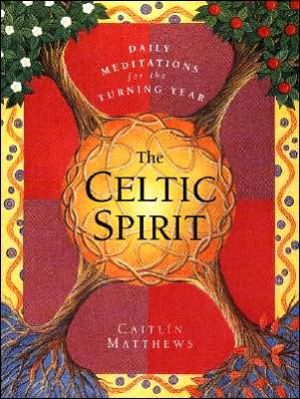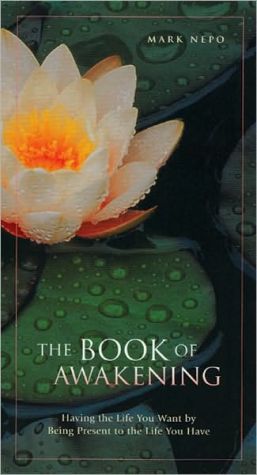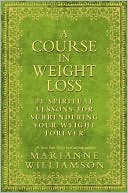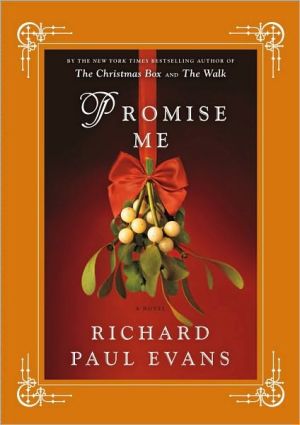Celtic Spirit: Daily Meditations for the Turning Year
Discover the Living Wisdom of the Ancient Celts\ The ancient Celts and their spiritual mediators, the Druids believed in the communion of all living things and sought harmony between nature and the human soul. Now, with this inspiring book of day-by-day mediations, renowned Celtic scholar Caitlín Matthews shows you how to reawaken the power of this age-old spiritual inheritance.\ Using poetry, myths, reflections, rituals, and visualizations, Matthews leads you on a yearlong pilgrimage that...
Search in google:
Discover the Living Wisdom of the Ancient Celts The ancient Celts and their spiritual mediators, the Druids believed in the communion of all living things and sought harmony between nature and the human soul. Now, with this inspiring book of day-by-day mediations, renowned Celtic scholar CaitlÍn Matthews shows you how to reawaken the power of this age-old spiritual inheritance. Using poetry, myths, reflections, rituals, and visualizations, Matthews leads you on a yearlong pilgrimage that will help connect the cycles of your soul to the circle of the seasons. From the winter months of Samhain the summer months of Beltant, from mediations on the gifts and blessings of life to the insights and promises of the soul, she enables you to complete your own sacred circuit of the turning year. Brimming with the legends and lore of Ireland, Wales, Scotland, and Britain, The Celtic Spirit is a brilliant introduction to the sacred wisdom of the Celtic path—and a potent resource for daily spiritual renewal. Rocky Mountain News Because the Celtic Spirit's simplicity and gentleness cut across boundaries, there's something here for almost everyone.
Chapter One\ \ \ \ November\ \ Month of November—very fat are the swine;\ Let the shepherd go; let the minstrel come;\ Bloody the blade, full the barn.\ —anon. Welsh poem\ \ The season of winter begins at Samhain, the Celtic New Year, on the eve of November. The meditation themes this month include destiny and fate, cycles and ages, fullness and emptiness, enduring traditions, overcoming difficulty by finding deep resources, the nature of action, and directions and spaces.\ \ 1 November\ The Assembly of Peace\ It was their custom at the Feis of Tara to pass six days in feasting together before the sitting of the assembly: three days before Samhain and three days after it, making peace and entering into friendly alliances with each other.\ —Geoffrey Keating, Forus Feasa ar Eirinn\ The Festival Assembly of Tara, at which the nobles and learned people of Ireland ratified and renewed laws, took place every three years. During the festival it was strictly forbidden for any robbery, assault, or legal wrangles to take place. Anyone so engaged was summarily sentenced to death, and not even the king himself had power to pardon the one who had disrespected the assembly of peace. Samhain (SOW'en) marked the beginning of winter and the cessation of hostilities between warring factions. The poets and their retinues quartered with the rich households of Ireland until Beltane (BEL'tenn-a; May) so that the winter months might pass more quickly by their entertainment. \ Samhain means "the summer's end." In early days, this festival heralded a period when the gates of sid (SHEE), the faery gates of the otherworld, were open andwhen the ancestors were nearer to the otherworld than at any other time.\ After a preliminary evening of half-fearful, half-mischievous activities, the daytime temper of Samhain was one of gravity, wherein all the changes could be acknowledged and assimilated. Of all the Celtic festivals, this is the one at which we best experience the overlap of one world with the other. It is time to assemble peacefully and be conscious of the ordering of our affairs, bringing ourselves into alignment with the blessings, work, and opportunities of the darker half of the year.\ Spend part of this day in assessing your place in life: look at unfinished Assess your current spiritual position, scrutinize your motives, clarify your commitments; recognize and discard inappropriate patterns that no longer serve you.\ \ 2 November\ Making Peace with the Ancestors\ Dear ones in the house of the dead,\ Can you forgive\ An old woman who was your proud\ Daughter, who now too late\ Returns your love?\ —Kathleen Raine, The Oracle in the Heart\ \ We often do not understand those who are closest to us until it is too late. This is especially true of our parents, upon whom we heap the faults of our upbringing. Parents struggle to do the best thing for their children, but these efforts are seldom appreciated until the children themselves become parents and enter into the war of attrition that we call growing up. When we are adults, our activities take us far from our parents' domain. The death of parents is perhaps the last part of growing up, usually happening when we are raising our own children, so that we stand midway between youth and age. Those who now find themselves in the eldest generation of a family discover new responsibilities: as they become grandparents, they look to the new generation to solve old, long-standing problems. This ancestral bequest tends to gather weight and momentum as it rolls from generation to generation, sometimes becoming too heavy for any one person to carry.\ Making peace between ourselves and our ancestors requires two things: the ability to speak the truth lovingly, and the ability to forgive and let go of issues that have muddied the way between us and the dead. We need to offer a word of love, a sign of admiration or praise, a visit, a gift, even a phone call—some direct communication while there is opportunity, before the time for regret is all that is left.\ Make a soul-flight to a place where you and a relative who is now dead used to meet together. Speak the words that you would have liked to say before death intervened. Listen to the words that your relative speaks to you. Thank and bless your relative.\ \ 3 November\ The Ancestral God\ The Gauls all claim to be descended from Dis Pater, claiming that this is the tradition preserved by the Druids.\ —Julius Caesar, The Conquest of Gaul\ \ On his Gaulish campaign, Julius Caesar studied the nature of the people he intended to conquer, learning that they believed themselves to be descended from Dis Pater, or the Father God of the Underworld. Caesar noted that it is on account of this fact that they celebrated all their festivals and holy days from the eve of the previous day, when darkness falls, rather than from the morning of the day itself. The primacy given to the night over the day by the Celts is a respectful remembrance of their beginnings and of their divine ancestor.\ One Irish figure who fills the role of Dis Pater is Cu Roi (KOO roy) with his otherworldly revolving tower in the West of Ireland. He wields a long-handled beheading axe and oversees the awarding of the champion's portion at Bricriu's Feast by coming, in the guise of a dark giant, to offer the contenders a sportive game: he will kneel for them to behead him in return for being beheaded themselves! Only Cuchulainn (Koo-HULL'en) is brave enough to take up his challenge: he kneels willingly, is spared by Cu Roi, and so is proved the worthiest champion.\ Cu Roi's partner is Blathnad (BLAN'id), the Goddess of Flowers. Theirs is a partnership that reminds us of the relationship between the Greek Goddess of Returning Spring, Persephone, and Plutos, the Underworld God of the Dead. Life and death are a partnership like day and night: after growth, decay; after death, new growth. The message of Dis Pater to all his descendants is, "All of you shall come to me, to my house, when you die." The secret of his consort is that we too shall grow again, emerging from the darkness of night.\ Meditate upon the cycles of life and death, night and day.
\ Rocky Mountain NewsBecause the Celtic Spirit's simplicity and gentleness cut across boundaries, there's something here for almost everyone.\ \








